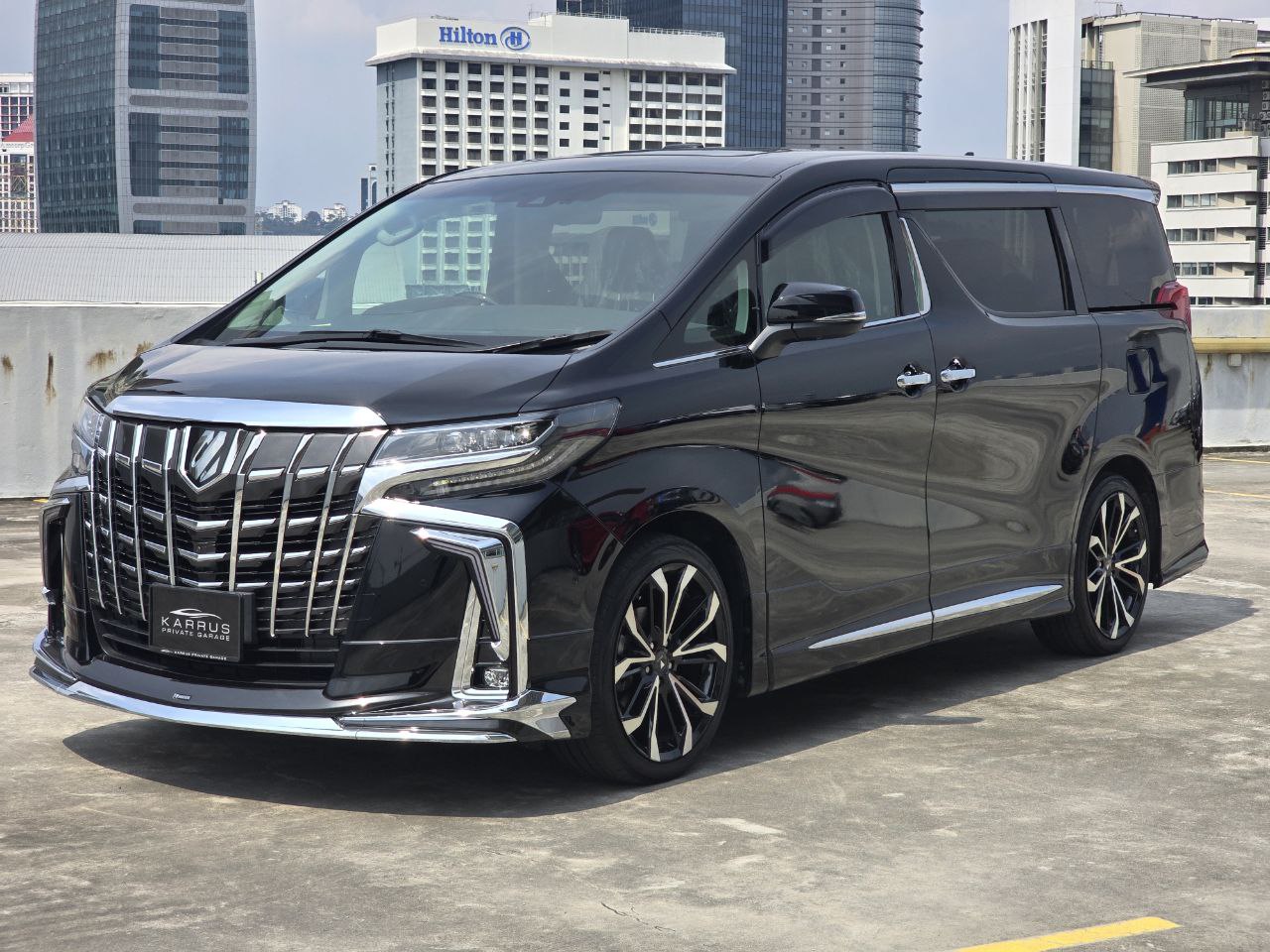
Alphard SC: Why It’s a Popular Choice in Ma ..
Aug 09 - 2025

29
Nov
Buying a car is one of the most significant investments many of us will make, and with the sheer variety of models and brands available today, it’s easy to feel overwhelmed. From hatchbacks to SUVs, hybrids to electric vehicles, choosing the right car involves many factors beyond just the price tag. That’s where car comparison comes in. Car comparison allows potential buyers to evaluate and weigh their options across multiple dimensions, ensuring they make an informed, practical, and financially sound decision.
In the digital age, information is more accessible than ever, but that also means there’s more to sift through. Comparing cars side by side, whether online or with the help of a dealer, empowers consumers to narrow down their choices based on what truly matters. Factors like fuel efficiency, safety ratings, technological features, and maintenance costs are now easier to scrutinise. Additionally, current statistics show that about 63% of car buyers spend at least 6 weeks researching online before making a final purchase, illustrating the importance of thorough comparison during the decision-making process.
By taking the time to compare cars, buyers can prevent buyer’s remorse, get more value for their money, and avoid purchasing vehicles that don’t align with their long-term needs. This process doesn’t just help in selecting the right car for today, but it also contributes to long-term satisfaction with the vehicle’s performance, resale value, and overall ownership experience. Whether you’re a first-time buyer or looking to upgrade, comparing cars is crucial in making a decision you’ll feel confident about in the long run.
One of the primary advantages of car comparison is the potential for financial savings. By carefully comparing various models:
Identifying the best deals and promotions: Car manufacturers and dealerships regularly offer promotions, rebates, or special financing rates. Comparing different offers allows you to spot the most cost-effective options.
Preventing overspending by understanding value: A more expensive car isn’t always the better one. By comparing, you can determine which models offer the most features and benefits for the best price, ensuring you don’t pay more for less.
Lowering long-term ownership costs: Certain vehicles may come with lower upfront costs but may prove costly in the long run due to poor fuel efficiency, high insurance premiums, or expensive repairs. Comparing models can help identify cars that save money over time.
Each vehicle comes with unique features and specs. When comparing cars:
Matching car features with personal needs: Whether it’s advanced safety systems, navigation, or entertainment, different cars excel in various areas. By comparing, you can ensure the car you choose meets your specific requirements, such as family needs or daily commuting.
Avoiding unnecessary add-ons and packages: Manufacturers often bundle features into packages, some of which you might not need. A thorough comparison helps you avoid paying for extras that add little value.
Ensuring the car fits lifestyle and usage: A powerful engine might be appealing, but if most of your driving is within the city, fuel efficiency might take priority. Similarly, a large SUV may be unnecessary if you don’t require extra space or off-road capability.
Car safety and reliability are paramount:
Comparing safety ratings: Different models come with various safety ratings based on crash tests and features like airbags, lane departure warnings, and more. A car comparison ensures you're choosing a vehicle that prioritises your safety.
Understanding manufacturer warranties: Warranty coverage varies between brands, affecting potential repair costs in the long run. By comparing, you can select a car with comprehensive and long-lasting warranty protection.
Reading consumer reliability reviews: Online reviews from current car owners are valuable when comparing models, as they provide real-world insights into long-term reliability and maintenance needs.
Failing to compare cars before making a purchase can lead to several costly mistakes, many of which can affect your overall satisfaction with the vehicle:
By not taking the time to compare, you might end up missing out on better alternatives. It's easy to fall in love with the first car you test drive, but rushing into a decision could mean choosing a car that isn't the best fit for your needs. There could be other models within the same price range that offer better features, better fuel efficiency, or higher safety ratings. Overlooking these options can result in regret down the line when you realise another car might have been a better fit for your lifestyle.
Moreover, skipping a comparison often leads to settling for a less reliable brand or model. Brand reputation matters, especially when it comes to long-term performance and repair costs. Failing to compare reliability ratings could leave you with a vehicle prone to breakdowns, which increases your maintenance costs and decreases the vehicle's resale value.
Lastly, there's the risk of overpaying for unnecessary features. Without comparing cars, you might end up with a vehicle loaded with expensive add-ons you don't need or won't use. Features such as heated seats or premium sound systems can inflate the price, but may not add any real value to your driving experience. A thorough comparison helps you choose the features that truly matter to you and ensures you're getting the best value for your money.
Investing time in comparing cars before purchasing doesn’t just help in making the right decision today—it also sets you up for long-term satisfaction. When you consider factors such as fuel efficiency, maintenance costs, and reliability during the comparison process, you're making a decision that could save you thousands of dollars over the lifetime of the vehicle.
Additionally, comparing cars based on features and specifications helps ensure the vehicle will continue to meet your needs as your lifestyle changes. For instance, if you anticipate your family growing, an SUV might offer more practicality in the future than a compact car. Similarly, choosing a car with advanced safety features could provide peace of mind for years to come.
Finally, comparisons allow you to think about resale value. Some cars hold their value better than others, and by comparing depreciation rates, you can select a vehicle that offers a better return on investment when it's time to upgrade again. Long-term satisfaction stems from making choices based on research and comparison rather than impulsivity.
Start by setting your priorities, including your budget, desired features, and reliability of the brand. This will help you narrow down the right models.
Focus on engine performance, safety features, warranty coverage, and the latest technology options.
By understanding fuel efficiency, depreciation, and potential repair costs, you can choose a car that costs less to own over time.
Online comparisons are great for initial research, but visiting a dealership allows for test drives and in-person inspections.
Yes, but ensure they’re from credible sources. At TC Autohub, we use only reliable comparison tools and up-to-date data to guide your decision.
In conclusion, comparing cars before purchasing is a vital step in ensuring you get the best deal, make the right choice for your needs, and enjoy your vehicle for years to come. Whether it’s about identifying financial savings, understanding the latest features, or ensuring safety, car comparisons provide the insight and clarity needed to make an informed decision. As the car market continues to evolve, being an educated buyer has never been more crucial.
At TC Autohub, we make the car comparison process simple and straightforward. Our experts are here to guide you through the key factors that matter most—whether it’s price, features, or long-term value. Don’t make the mistake of rushing into a purchase. Contact us and let us help you find the car that’s perfect for you.